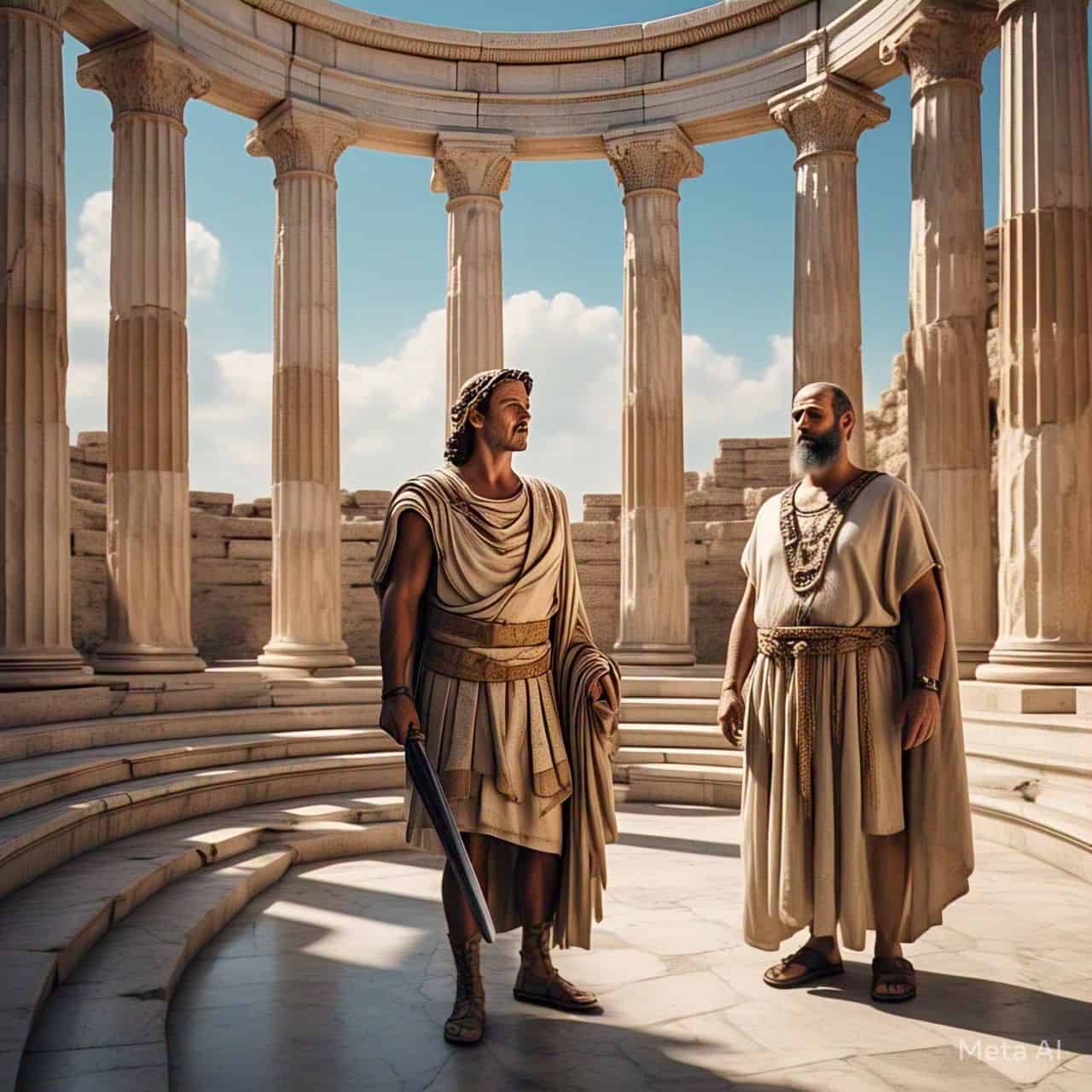

Aeschylus' Agamemnon and Sophocles' Oedipus Rex
Greek tragedy has long been a subject of literary analysis, with works like Aeschylus’ Agamemnon and Sophocles’ Oedipus Rex offering deep insights into fate, free will, and tragic flaws. This article presents an in-depth comparison of Aeschylus’ Agamemnon and Sophocles’ Oedipus Rex, examining their thematic and structural differences.
Aeschylus (c. 525–456 BCE) is known as the “Father of Tragedy” because he introduced significant changes to Greek drama. He added a second actor, which allowed for greater interaction and dialogue. His most famous work is the trilogy The Oresteia, which includes Agamemnon, The Libation Bearers, and The Eumenides.
Agamemnon, the first play in the trilogy, tells the story of King Agamemnon’s return from the Trojan War. His wife, Clytemnestra, is angry because Agamemnon sacrificed their daughter, Iphigenia, before the war. She takes revenge by killing him. The play explores themes of justice, revenge, and fate. Aeschylus presents the idea that violence leads to more violence, creating a cycle of bloodshed. The use of the Chorus, a group of characters who comment on the action, helps to express moral and philosophical ideas.
Aeschylus’ tragedies are grand and poetic. His characters are often caught in divine conflicts, meaning they suffer because of the will of the gods. His writing style is serious, and his plays focus on moral lessons. (Reminder! This article is recommended for all those who are in search of content on “Greek tragedy comparison: Agamemnon vs. Oedipus Rex “).
Sophocles (c. 496–406 BCE) was another great Greek tragedian. He introduced the third actor, which made the drama more complex. He also reduced the role of the Chorus and focused more on character development and psychological depth.
His most famous play is Oedipus Rex, which is part of the Theban Plays. The story follows Oedipus, the King of Thebes, who tries to save his city from a plague. A prophecy states that Thebes is cursed because the murderer of the former king, Laius, is living among them. Oedipus investigates and slowly discovers that he himself unknowingly killed his father, Laius, and married his mother, Jocasta. This shocking revelation leads to Jocasta’s suicide and Oedipus blinding himself in despair.
(Please leave your feedback in the comments if you find the this information on Aeschylus’ Agamemnon and Sophocles’ Oedipus Rex valuable or if you want to add to it.)
The play explores the themes of fate vs. free will, human ignorance, and the search for truth. Sophocles shows that Oedipus tries to escape his fate but ends up fulfilling it. His downfall is a mix of fate and his own choices, making the tragedy more personal and emotional.
Sophocles’ tragedies focus more on human experience rather than divine punishment. His characters have depth and psychological complexity, making them feel real and relatable.
Now let’s navigate through Greek tragedy comparison: Agamemnon vs. Oedipus Rex .
Both playwrights shaped Greek tragedy and influenced later literature and theatre. Their works continue to be studied for their insights into human nature and destiny. Aeschylus’ Agamemnon and Sophocles’ Oedipus Rex
In conclusion, this in-depth comparison of Aeschylus’ Agamemnon and Sophocles’ Oedipus Rex highlights the complexities of Greek tragedy and its enduring influence on literature and drama.
Authors’ Note: If you want to contribute to this article or have some more article of value like this Aeschylus’ Agamemnon and Sophocles’ Oedipus Rex please don’t hesitate to contact.
Keywords for this article as suggested by Rudhra from Luxembourg are Aeschylus’ Agamemnon and Sophocles’ Oedipus Rex
Examination Questions
Read More
Plot Construction in Pride and Prejudice
Introduction to Fiction and Non Fiction
Of Death — Francis Bacon (Text)
Of Truth Critical Analysis by Sir Francis Bacon
Of Truth by Francis Bacon Summary
Visit Us on our Facebook Page:
Speech on Mercy by Portia: Rhetoric, Religion, and Justice in The Merchant of Venice Speech…
Analysis of I Too and The Weary Blues by Langston Hughes: Colonial Experience Langston Hughes,…
Ben Jonson and Comedy of Humours inVolpone (Satire & Greed) This article explores Ben Jonson…
Themes in Twelfth Night William Shakespeare’s Twelfth Night (c. 1601) is one of his most…
Summary of Twelfth Night William Shakespeare’s Twelfth Night, believed to have been written around 1601,…
Shakespearean Comedy and Its Features William Shakespeare, one of the greatest playwrights in English literature,…
This website uses cookies.